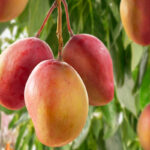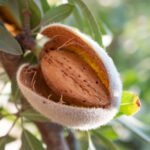Australia: Sweeping changes set for asparagus, pomegranate imports

Australian authorities are expected to take a stricter approach towards imports of Mexican and Peruvian asparagus in response to frequent detections of thrips on the commodity.
The practice until now has been to fumigate shipments when the pest is found in Australia during import inspection, but that is likely to change according to Australian Horticultural Exporters’ and Importers’ Association (AHEIA) CEO Dominic Jenkin.
"The Department of Agriculture and Water Resources (DAWR) have indicated that imported goods found to be frequently infested with thrips will be subject to additional pest mitigation measures which may include mandatory treatment," Jenkin told Fresh Fruit Portal.
"For asparagus from Latin America this will likely mean fumigation at origin as a mitigation measure for thrips. At this stage DAWR have suggested pre-shipment fumigation with methyl bromide.
"This could make trade problematic for the industry due the shelf life consequences for asparagus after what is already a long journey from the Americas to Australia."
According to AHEIA data from between March 1 and August 31 last year, thrips were found in 84% of Peruvian asparagus shipments to Australia while the rate for Mexican asparagus stood at 64%.
As not all thrips species are considered actionable pests by the Australian government, not all of these interceptions were actionable from a quarantine perspective however the majority were.
Australia currently considers 11 thrips species to be of quarantine concern, but a further three that already exist in the country are also in line to becoming regulated pests due to emerging research into the viruses they can transmit.
"Thrips, and the orthotospoviruses they transmit, can cause considerable economic consequences across a wide range of fruit, vegetable, legume and ornamental crops by reducing yield, quality and marketability," the DAWR's Biosecurity Plant Division said in a biosecurity advice report issued in November, 2017.
"Orthotospoviruses are a significant emerging risk to Australia with many recent reports of new species with rapidly expanding host plant ranges, geographic distributions and thrips vectors.
"Imported commodities will be regulated if they are infested with quarantine pest thrips or regulated thrips that transmit quarantine orthotospoviruses, to reduce the risk of establishment of these organisms in Australia."
Jenkin added a similar issue was on the radar as well for imports of pomegranates from the U.S., where additional pest mitigation measures are being proposed by DAWR in response to frequent pest interceptions on this pathway.
The trade advocate has urged South American asparagus exporters and representatives of the Californian pomegranate industry to make contact so a working group can be formed to address these issues.
"I am aware that phosphine may be used to fumigate for thrips and I wished to discuss whether this may be a preferred option for asparagus - it has been registered for use on bean thrips for imported citrus," he mentioned.
"Its inclusion into the import conditions would require involvement by the relevant authorities of the exporting countries and establishing a MRL (maximum residue limit) for phosphine on asparagus with FSANZ (Food Standards Australia New Zealand)."
Photo: www.shutterstock.com














































